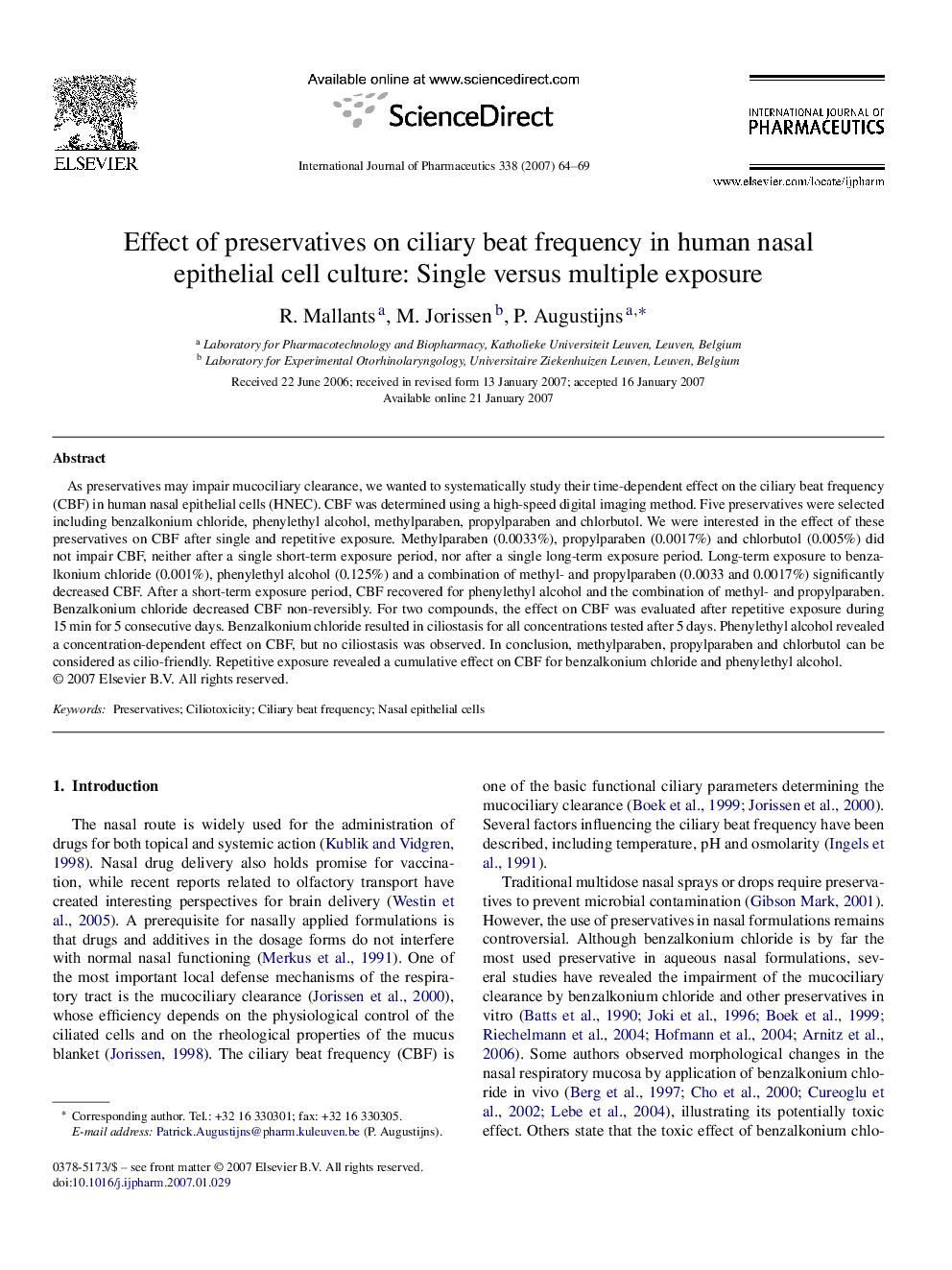| Article ID | Journal | Published Year | Pages | File Type |
|---|---|---|---|---|
| 2506178 | International Journal of Pharmaceutics | 2007 | 6 Pages |
As preservatives may impair mucociliary clearance, we wanted to systematically study their time-dependent effect on the ciliary beat frequency (CBF) in human nasal epithelial cells (HNEC). CBF was determined using a high-speed digital imaging method. Five preservatives were selected including benzalkonium chloride, phenylethyl alcohol, methylparaben, propylparaben and chlorbutol. We were interested in the effect of these preservatives on CBF after single and repetitive exposure. Methylparaben (0.0033%), propylparaben (0.0017%) and chlorbutol (0.005%) did not impair CBF, neither after a single short-term exposure period, nor after a single long-term exposure period. Long-term exposure to benzalkonium chloride (0.001%), phenylethyl alcohol (0.125%) and a combination of methyl- and propylparaben (0.0033 and 0.0017%) significantly decreased CBF. After a short-term exposure period, CBF recovered for phenylethyl alcohol and the combination of methyl- and propylparaben. Benzalkonium chloride decreased CBF non-reversibly. For two compounds, the effect on CBF was evaluated after repetitive exposure during 15 min for 5 consecutive days. Benzalkonium chloride resulted in ciliostasis for all concentrations tested after 5 days. Phenylethyl alcohol revealed a concentration-dependent effect on CBF, but no ciliostasis was observed. In conclusion, methylparaben, propylparaben and chlorbutol can be considered as cilio-friendly. Repetitive exposure revealed a cumulative effect on CBF for benzalkonium chloride and phenylethyl alcohol.
